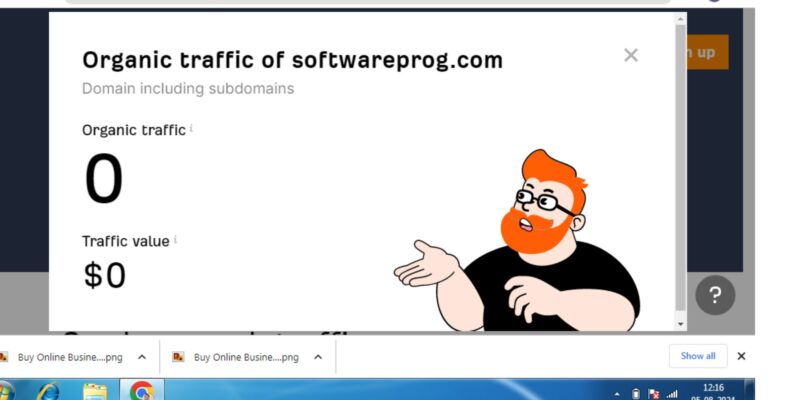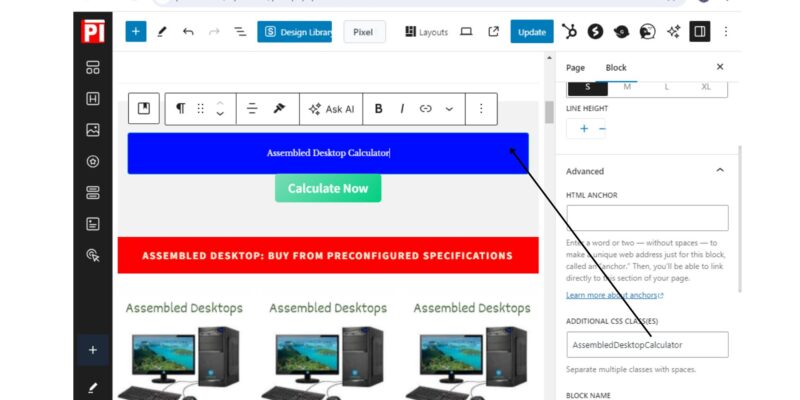
The Hidden Pitfalls of Relying on SEO Tools for Website Traffic Analysis: A Comprehensive Guide for Buyers
Introduction
When buying a website, potential buyers often rely on SEO tools like SEMrush and Ahrefs to assess traffic and keyword performance. However, these tools can significantly underreport traffic, particularly for starter websites, leading to skewed perceptions and potentially misguided decisions. This guide explores the limitations of these tools and offers advice for making more informed purchasing decisions.
Understanding the Limitations of SEO Tools
1. Inaccurate Traffic Estimates
- Underreporting Visits: SEO tools often miss many instances of visits that Google Analytics (GA) accurately captures. This discrepancy arises because these tools use different data sources and estimation methods.
- Limited Data Sources: Tools like SEMrush and Ahrefs rely on their own databases and third-party data, which might not encompass the full spectrum of a site’s traffic.
2. Keyword and Ranking Data Gaps
- Missing Keywords: Starter websites may have long-tail keywords or niche terms that SEO tools do not track comprehensively.
- Ranking Fluctuations: These tools may not update their ranking data frequently enough, leading to outdated or inaccurate keyword positions.
3. Sampling and Estimation Methods
- Sampled Data: Tools often use a sample of data to estimate overall traffic and keyword performance, which can introduce errors, especially for smaller sites.
- Estimation Algorithms: The algorithms used to estimate traffic and rankings are proprietary and can vary significantly in accuracy.
Observations from Web Browsing
- Broad Variation in Reporting: There is a noticeable variation between the traffic and keyword data reported by SEO tools and the actual data available from GA and other analytics platforms.
- Inconsistent Coverage: Starter websites and niche sites often show greater discrepancies due to their lower visibility in the broader internet landscape that these tools monitor.
Implications for Buyers
1. Misleading Valuations
- Overreliance on Tools: Buyers may undervalue or overvalue a website based on incomplete data, leading to poor investment decisions.
- Missed Opportunities: Websites with significant potential might be overlooked if SEO tools fail to capture their actual performance accurately.
2. Verification Challenges
- Data Cross-Verification: Buyers need to cross-verify data from multiple sources, including direct access to GA, to get a true picture of a website’s performance.
- Owner Collaboration: Working closely with the current website owner to access real-time analytics can provide more accurate insights.
Best Practices for Website Buyers
1. Request Direct Access to Analytics
- Google Analytics: Ask for access to GA or other reliable analytics platforms to verify traffic data directly.
- Custom Reports: Request custom reports that detail traffic sources, user behavior, and keyword performance.
2. Use Multiple Tools
- Comparative Analysis: Utilize multiple SEO tools to get a broader perspective and identify any major discrepancies in the data.
- Manual Checks: Perform manual keyword searches and traffic estimations to supplement tool-based data.
3. Consider Qualitative Factors
- Content Quality: Evaluate the quality and relevance of the website’s content, which can be a strong indicator of future performance potential.
- User Engagement: Look at user engagement metrics such as bounce rate, session duration, and pages per session.
4. Engage Experts
- SEO Consultants: Hiring an SEO expert can help in accurately assessing a website’s performance and potential.
- Due Diligence: Conduct thorough due diligence, including technical SEO audits, to uncover any hidden issues.
Conclusion
While SEO tools like SEMrush and Ahrefs provide valuable insights, they have limitations that can significantly impact the evaluation of starter websites. Buyers should be aware of these limitations and adopt a comprehensive approach that includes direct analytics access, multiple data sources, and qualitative assessments to make informed purchasing decisions. This multifaceted strategy will help ensure a more accurate valuation and uncover the true potential of a website.
Disclaimer: This article was generated with the assistance of large language models. While I (the author) provided the direction and topic, these AI tools helped with research, content creation, and phrasing.












